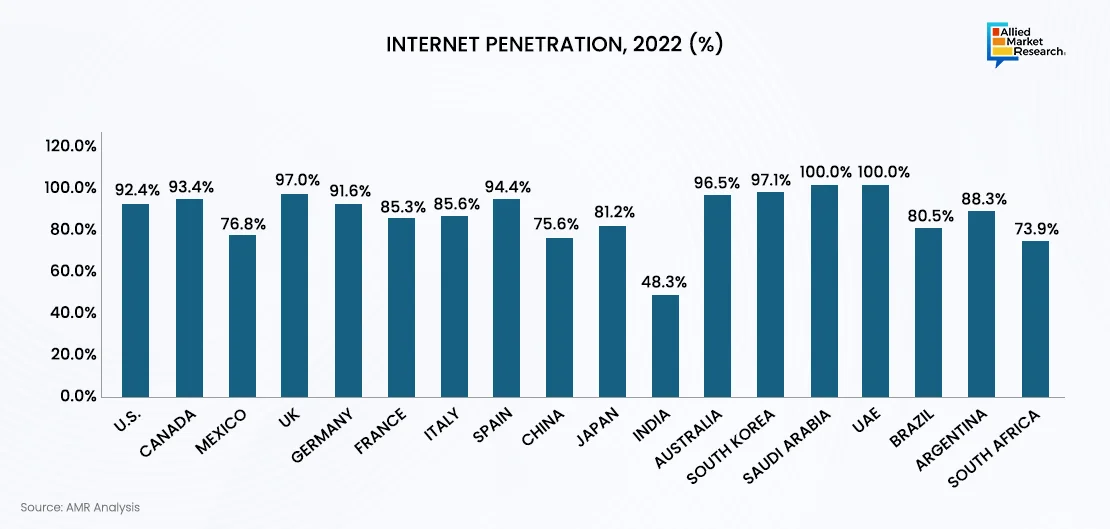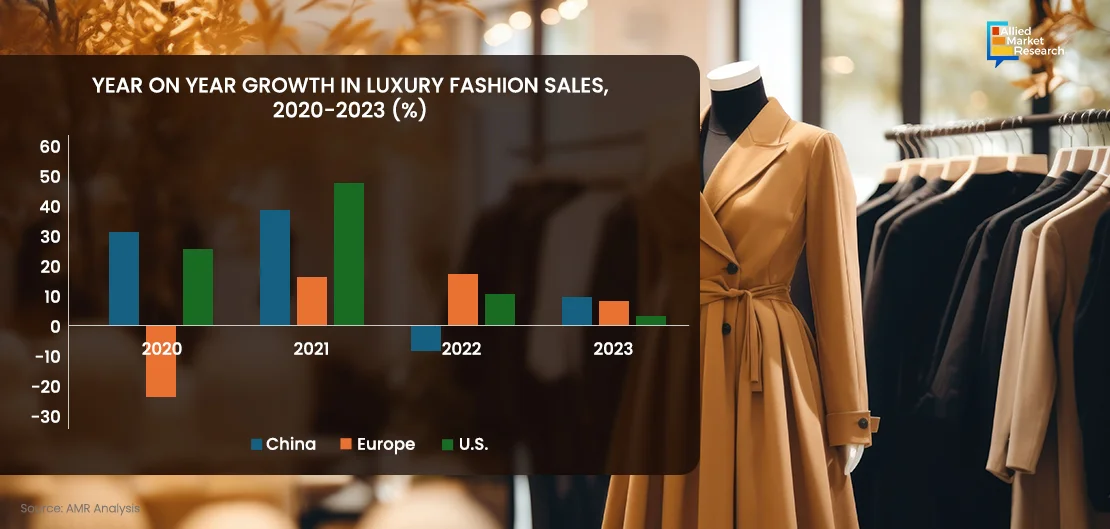Table Of Contents

Roshan Deshmukh

Ketki Gajanan Dongare
Personalization in Luxury Fashion Market: Potential Challenges and Opportunities

Luxury fashion refers to luxury, aspirational clothing, jewelry, and lifestyle goods made with exceptional craftsmanship, fine materials, and classic designs. It represents exclusivity, refinement, and status, enticing to rich buyers looking for symbols of wealth and unique manifestations of personal taste. In developed nations, increased disposable incomes, privileged customer groups, and an attitude of extravagant spending boost demand for luxury products. Established luxury fashion firms employ their pedigree, brand equity, and inventive marketing methods to gain market share and preserve elite status. Moreover, the proliferation of online retail platforms has increased the accessibility and demand for luxury apparel.
The global luxury apparel market size is increasing at a positive rate in the global market as the marketers are increasingly focused on engaging and experiential luxury, recognizing that modern customers value experiences above tangible goods. This trend has prompted luxury businesses to invest in various store designs, personalized services, and special events to improve the whole experience of shopping. Furthermore, technological advancement has significantly increased the exposure of luxury brands, enabling them to engage with worldwide audiences via e-commerce sites, social networking sites, and augmented reality experiences. In addition, there is rise in demand for environmental sustainability and moral values in the luxury industry, driving businesses to use more accountable and open manufacturing processes. Furthermore, developed regions, such as China, Europe, and the U.S. are experiencing high growth rate in sales, which is encouraging the expansion of luxury business. The availability and accessibility of renowned luxury fashion brands along with the introduction of personalization services by companies makes the U.S. as a strong market for luxury fashion. Following the U.S., Europe is the second most promising market for luxury fashion with average CAGR of 14.2% from 2020 to 2023.

Personalization and Luxury
Luxury is frequently associated with affluence and exuberance, yet its actual essence rests in the person's viewpoint and ideals. What a particular individual thinks luxurious may differ significantly from another individual's definition. Personal luxury is defined as indulging in encounters, things, or events that have special meaning for an individual or provide a sense of fulfillment and satisfaction. The luxury fashion companies have identified the role of personalization in the luxury fashion industry and have taken initiatives to improve the consumer experience and provide solutions that are unique in nature. For instance, Louis Vuitton offers a unique and complimentary hot stamping service as part of its personalization options, allowing customers to add a distinctive touch to their small leather goods, luggage tags and select soft-sided luggage bags as well as engraving for Fragrance bottles. Furthermore, the company offers a unique painting service for hard-sided Monogram or Damier Canvas luggage. Louis Vuitton also offers multiple personalization options such as My LV Heritage, fragrance bottle engraving and others. Consumers are offered to choose and to personalize their favorite piece with initials and stripes choosing between the 17 colors offered and creating one of the 200 million different combinations possible.
Adoption and Popularity of Luxury Products
Rise in popularity of luxury items is creating a substantial potential for personalization in the luxury fashion sector. Luxury companies are responding to consumers' growing need for distinctive and unique products that represent their uniqueness and flair by offering personalized services and customization choices. This tendency is consistent with the wider transition towards experiential luxury, in which buyers prioritize personalized experiences over mass-produced objects. Luxury fashion businesses are using innovation and craftsmanship to adapt items to their customers' individual tastes and demands, whether by manufacturing bespoke clothing, personalized embroidery accessories, or providing custom-tailored services. Personalization not only increases the exclusiveness and perceived worth of luxury items, but it also develops deeper emotional relationships between businesses and consumers. Furthermore, personalization gives luxury firms a competitive advantage in a congested market, enabling them to stand out themselves and meet the changing needs of discriminating customers. For instance, in 2021, Burberry introduced its inaugural "First Social Retail" in Shenzhen, China, combining both physical and digital reality in a technologically engaging retail experience. Products are marked with QR codes, which unlock information and raise customers' "social currency". The more consumers interact, higher the chances of earning "rewards." The shop is designed to record consumer interactions on social networking sites and give them a physical presence through traditional retail methods.
Also, Le Bon Marché, the Moët Hennessy Louis Vuitton (LVMH) owned retail store in Paris facilitated and distinguished themselves from other luxury brands by providing very personalized services.
In conclusion, personalization is becoming a more significant component of the luxury fashion sector, boosting development and innovation while satisfying luxury consumers' demand for uniqueness and self-expression.
Internet availability and consumption in developing nations are paving the way for personalization inside the luxury fashion sector, allowing firms to form deeper relationships with shoppers and promote growth for their businesses in an increasingly digital environment.
The Middle East region is expected to showcase the highest growth rate for the luxury fashion industry owing to countries such as UAE and Saudi Arabia, which showcase 100% rate in internet penetration, however, South Korea shows the third highest penetration rate of 97.1% in the world and UK has the fourth highest internet penetration rate with 97.0% globally. With the growing rate of internet penetration in different regions of the globe, it is expected to play an important role in supporting the growth of technologies adopted by the fashion companies to provide personalized service and increase market reach.

Future Outlook for Personalization and Luxury
The future of personalization in the luxury apparel sector is marked by both growth potential and severe hurdles. Technological breakthroughs such as machine learning, artificial intelligence (AI), and data analytics provide luxury firms with unparalleled potential to get a deeper knowledge of customer needs and create hyper-personalized encounters. These technologies allow marketers to analyze massive quantities of data, such as purchase behavior, browsing habits, and social media connections, to adapt product suggestions, customize marketing campaigns, and personalize the shopping experience across numerous channels. In addition, rise in desire for long-term sustainability, ethical standards, and inclusion creates a possibility for luxury businesses to differentiate themselves by providing personalized offers that correspond with consumers' beliefs and goals. Despite these benefits, luxury businesses face a number of hurdles, including concerns about data protection, logistical constraints, and a requirement to strike a balance between scale and exclusivity. To stay competitive in a constantly dynamic and changing industry, businesses must strike a proper balance between embracing technology to increase personalization and conserving the expertise, genuineness, and legacy that distinguish luxury fashion. In conclusion, while personalization provides huge prospects for creativity and development in the luxury fashion business, firms have to negotiate the complex interaction of technical, cultural, and economic elements to succeed in the future environment of luxury fashion. For further insights, get in touch with AMR analysts.

